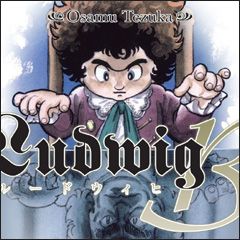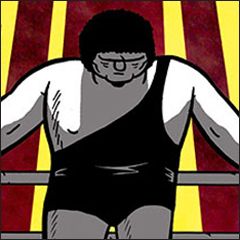Crowdfunding | Digital Manga Publishing's recent Kickstarter campaign raised some questions as to the proper role of crowdfunding in publishing. When DMP acquired the rights to all of Osamu Tezuka's manga that haven't already been translated into English, CEO Hikaru Sasahara launched an ambitious Kickstarter effort to publish about 400 volumes in just a few years. The campaign raised eyebrows not only because of the large amount of money involved (with stretch goals, it would have been more than half a million dollars) but also because it went beyond the direct costs associated with single volumes to include travel and staffing. That campaign failed, but DMP immediately launched another one that's closer to the usual model. I interviewed Sasahara and one of his most prominent critics to get both sides of the discussion. [Publishers Weekly]
Editorial cartoons | In an interview with his hometown newspaper, cartoonist and syndicator Daryl Cagle talks about his career. He spent 15 years working on Jim Henson's Muppets, so he entered newspaper cartooning when the situation was already starting to look grim, but he was also ahead of the curve when it came to starting his own syndicate: "I started my syndicate in 2000, when the other syndicates were still delivering cartoons by postal snail mail. I delivered cartoons from a small group of cartoonists by email and a download website, so we had a window of opportunity before the other big players caught up — and we had almost half of America’s newspapers as subscribers by the time the competition caught up." And here's an interesting nugget: Thanks to No Child Left Behind, editorial cartoons are part of the mandated curriculum for eighth and 11th graders. "We have a large audience of students who are forced to study our cartoons," Cagle explains. "The number one email I get is, 'Dear Mr. Cagle, please explain the cartoon to me, my paper is due tomorrow.' I hate it and I love it, but it helps to keep editorial cartoons relevant." [Santa Barbara Independent]
Creators | In a video interview shot at the Miami Book Fair, Roz Chast discusses her acclaimed graphic memoir Can't We Talk About Something More Pleasant? [PBS]
Creators | Picture book author Satoshi Kitamura talks about growing up reading the manga of Osamu Tezuka and Shigeru Mizuki — and discovering Little Nemo when he was 16. [The Guardian]
Creators | Seiichi Hayashi, whose manga appeared in the Japanese alternative manga magazine Garo, discusses his influences and his process. [Varoom]
Creators | "I really wanted to experience something that would be kind of terrible," Maximilian Uriarte said, so he joined the Marines, but even in Iraq he found more boredom than action. His webcomic Terminal Lance chronicles the more mundane side of war, and it has so many fans that he raised $160,000 on Kickstarter to fund his graphic novel, and the Marine brass sometimes turn to him for a signal boost. [Men's Journal]
Gift guides | GOOD magazine recommends five "gateway graphic novels," including Andre the Giant, Saga and Sugar Skull. [GOOD]
Gift guides | Vox, meanwhile, focuses on five comic books for non-comics readers, including The Wicked + The Divine, Bitch Planet and ... The Multiversity. [Vox]
Graphic novels | Frances Carbines covers the launch party for On the Trail of the Sandalwood Smugglers, a graphic novel published by Lush Cosmetics offshoot Gorilla Perfume. Despite being a commercial product, it sounds quite interesting: "Through the novel, readers can follow Lush buyers team Agnès Gendry and Simon Constantine’s real-life investigation into the illicit sandalwood trade, undertaken when they discovered that some of the ingredients they were using in their perfumes came from dubious sources. They wanted to verify the authenticity of their ingredients firsthand, in an atmosphere of rumours about shady sandalwood oil dealings leading to murders. When the rumours proved to be true, they journeyed across continents to find an alternative, sustainable source of the essential oil for their perfume — and to raise awareness of the issues involved in commercial sourcing." [Women Write About Comics]
Retailing | Perry Plush, the owner of Zanadu Comics in Seattle, has been in the retail business since 1975, but he's anything but old school; his store has a modern sensibility, with a wide selection, helpful staff and such 21st-century touches as Ladies Nights and a weekly YouTube show. [The Daily]





